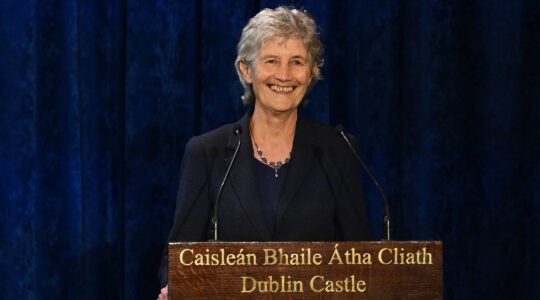(JTA) — The spokeswoman for a French film festival disputed claims by an Israeli film director who said he was attacked by Arabs outside the event.
“I saw the attack and nothing about the attacker, who was maybe 15 years old, said to me that he was Arab, but there is no way to be sure,” Gaelle Rodeville of the Aubagne International Film Festival told JTA on Tuesday.
Rodeville was referring to the March 26 beating of Yariv Horowitz at Aubagne near Marseille, where he presented his film "Rock the Casbah," which takes a critical view of Israeli occupation. He was rendered unconscious in the beating.
Horowitz told Haaretz that he was beaten by several young men who “were clearly Arabs and drunk.” One of them had an Arab accent, he said.
But Rodeville on March 30 released a statement saying there was only one attacker and demanded Horowitz “retract” his statements.
“As far as we are concerned, he was not Arab," the statement said. "The events that led up to a punch (a single punch) had nothing to do with a racist attack nor a lynching.”
In an interview for the news website Walla, Horowitz also said he never claimed the attack was anti-Semitic but reiterated his version of events. He said that if Rodeville knew the identity of the attackers, she should report it to the authorities.
Rodeville told JTA that she did not know the identity of the attacker and that Horowitz was approached by “a group,” but only the 15-year-old boy hit him from the back. The attack was witnessed by Assaf Amdurski, a composer and Horowitz’s friend. Amdurski was not assaulted.
“If the attack was anti-Semitic, then how come only Horowitz was struck but his composer was not hit?” Rodeville asked. “I don’t know what went on before between Yariv and the group.”
Richard Prasquier, the president of the CRIF umbrella organization of French Jewry, told JTA that after looking into the case, he found "there is no evidence to suggest the attack was anti-Semitic. Claiming this is irresponsible."
JTA has documented Jewish history in real-time for over a century. Keep our journalism strong by joining us in supporting independent, award-winning reporting.





